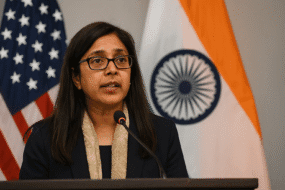Mossad Declined Ground Operation in Qatar, Citing Ceasefire Risks; Israel Opted for Airstrikes on Hamas Leaders
Israel’s intelligence agency Mossad reportedly refused to execute a planned ground operation in Doha, Qatar, targeting Hamas leaders, according to a report by the Washington Post.
Mossad Director David Barnea opposed the move, warning it could jeopardize sensitive relations with Qatari officials who are mediating ceasefire negotiations. “We can get them in one, two, or four years from now, and Mossad knows how to do it — why do it now?” one source quoted in the report said.
Instead, Israel opted for an airstrike on Tuesday, deploying 15 fighter jets that fired 10 missiles from a distance. The strike, however, failed to eliminate senior Hamas leaders. Instead, it reportedly killed several relatives and aides of the delegation, along with a Qatari officer. Hamas later confirmed that its Doha-based leader Khalil al-Hayya survived, even performing funeral rites for his son Hammam.
Divisions Over Timing
The operation exposed internal rifts within Israel’s leadership. IDF Chief of Staff Lt. Gen. Eyal Zamir objected, warning the strike could derail ongoing negotiations for hostage release. Strategic Affairs Minister Ron Dermer and Defence Minister Israel Katz supported Prime Minister Benjamin Netanyahu’s decision, while Nitzan Alon, the senior officer handling hostage talks, was excluded from the meeting to avoid dissent.
A senior official familiar with the talks told Channel 12:
“There is a deal for the return of the hostages on the table, and the negotiations should be exhausted. An operation like this at the current time could harm that possibility.”
Israel’s Justification
Government sources said the strike was a response to a rare opportunity to target Hamas leaders gathered in one place. They also pointed to recent Hamas-claimed attacks, including the Jerusalem assault that killed six civilians and a Gaza ambush killing four Israeli soldiers, as justification for the timing.
The Shin Bet coordinated with the Air Force in executing the strike, while Mossad’s opposition underscored the ongoing debate over balancing military pressure with ceasefire diplomacy.





